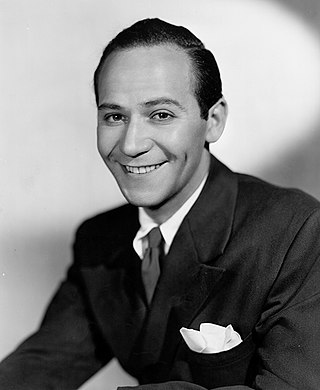
Frank Henry Loesser was an American songwriter who wrote the music and lyrics for the Broadway musicals Guys and Dolls and How to Succeed in Business Without Really Trying, among others. He won a Tony Award for Guys and Dolls and shared the Pulitzer Prize for Drama for How to Succeed. He also wrote songs for over 60 Hollywood films and Tin Pan Alley, many of which have become standards, and was nominated for five Academy Awards for best song, winning once for "Baby, It's Cold Outside".

The Most Happy Fella is a 1956 musical with a book, music, and lyrics by Frank Loesser. The story, about a romance between an older man and younger woman, is based on the 1924 play They Knew What They Wanted by Sidney Howard. The show is described by some theatre historians and critics as operatic. The original Broadway production ran for 14 months and it has enjoyed several revivals, including one staged by the New York City Opera.
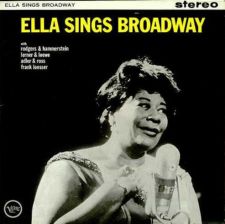
Ella Sings Broadway is a 1963 studio album by the American jazz singer Ella Fitzgerald, with an orchestra arranged and conducted by Frank DeVol. Shortly before the sessions for Ella Sings Broadway, Ella had recorded two singles with Marty Paich, the Antonio Carlos Jobim song 'Desafinado' and a Bossa Nova version of the jazz standard 'Stardust'. This prompted many Ella Fitzgerald fans and scholars to conclude that these sessions were also led by Paich. However, the original scores and parts exist in Ella Fitzgerald's library and it was determined that all the music was arranged by Frank DeVol. In fact, DeVol had previously worked with Ella Fitzgerald having written arrangements for Hello Love (1957), Get Happy (1957), Live Someone in Love (1957), Ella Sings Sweet Songs For Swingers (1958), and Ella Wishes You A Swinging Christmas (1960).

Charlie Rouse was an American hard bop tenor saxophonist and flautist. His career is marked by his collaboration with Thelonious Monk, which lasted for more than ten years.

Julius Watkins was an American jazz musician who played French horn. Described by AllMusic as "virtually the father of the jazz French horn", Watkins won the Down Beat critics poll in 1960 and 1961 for Miscellaneous Instrument.

Monk is a 1956 compilation album by jazz pianist and composer Thelonious Monk, featuring material recorded from 1953 to 1954 for the Prestige label and performed by Monk with two quintets, one featuring Julius Watkins, Sonny Rollins, Percy Heath, and Willie Jones and one featuring Ray Copeland, Frank Foster, Curly Russell, and Art Blakey. It was originally titled both Thelonious Monk [on its 1956 cover] and Thelonious Monk Quintets [on its labels]. Over the following decade, it was also re-released as Wee See and The Golden Monk The most common cover art, is 1958 revision, designed by Reid Miles.

Broadway – My Way is a studio album by Nancy Wilson released in March 1963 on Capitol Records. The album reached No. 18 on the Billboard 200 chart.
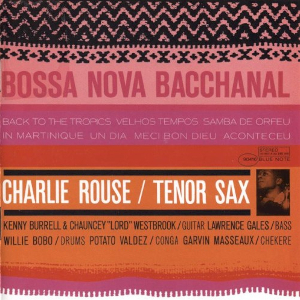
Bossa Nova Bacchanal is an album by American saxophonist Charlie Rouse recorded in 1962 and released in 1963 on the Blue Note label. It was the only album Rouse recorded as a leader for Blue Note. The CD reissue includes a bonus track recorded in 1965.

Meet Milt Jackson is an album by American jazz vibraphonist Milt Jackson featuring performances recorded between 1949 and 1956 and released on the Savoy label.

Highlife is an album by American jazz pianist Randy Weston recorded in 1963 and originally released on the Colpix label. Weston had traveled to Africa for the first time in 1961 for a series of concerts in Lagos, Nigeria, sponsored by the American Society of African Culture, and the album is inspired by the music of the African continent, in particular the highlife genre of West Africa.
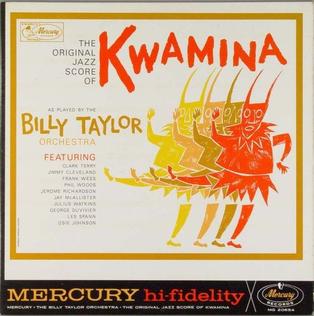
Kwamina is an album by American jazz pianist Billy Taylor featuring jazz interpretations of compositions from the Broadway musical Kwamina written by Richard Adler which was recorded in 1961 and released on the Mercury label.

Boss Tenor is an album by saxophonist Gene Ammons recorded in 1960 and released on the Prestige label.
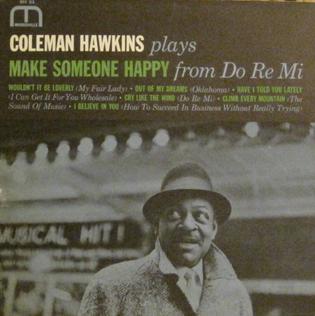
Coleman Hawkins Plays Make Someone Happy from Do Re Mi is an album by saxophonist Coleman Hawkins which was recorded in 1962 and released on the Moodsville label., featuring tracks from the 1960 broadway musicals Do Re Mi.
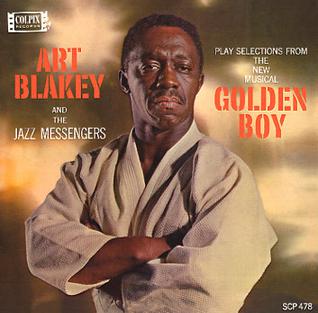
Golden Boy is a 1963 album by Art Blakey and the Jazz Messengers, performing compositions by Lee Adams and Charles Strouse written for the Broadway musical Golden Boy. The LP was originally released on the Colpix label.

The Chase Is On is an album by saxophonists Charlie Rouse and Paul Quinichette recorded in 1957 and released on the Bethlehem label.
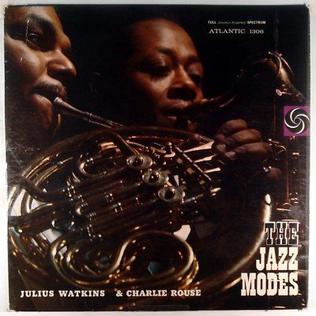
The Jazz Modes is an album by horn player Julius Watkins and saxophonist Charlie Rouse recorded in 1957 and 1958 and released on the Atlantic label.

Mood in Scarlet is an album by Les Modes led by horn player Julius Watkins and saxophonist Charlie Rouse recorded in 1956 and released on the Dawn label.

Les Jazz Modes is an album by Les Jazz Modes, a group led by french horn player Julius Watkins and saxophonist Charlie Rouse. The album was recorded in 1956 and released on the Dawn label. The album was released on CD with additional tracks from Jazzville Vol. 1 and Modern Jazz Festival

Julius Watkins Sextet is an album by the french horn player Julius Watkins featuring tracks recorded in 1954 and 1955 which were originally released as two 10 inch LPs on the Blue Note label.. The original 12 inch LP (K18P-9273) was released in Japan on June 25, 1983 by King Records (Japan), who owned the Blue Note license in Japan at that time.

Color Changes is an album by trumpeter Clark Terry featuring performances recorded in late 1960 and originally released on the Candid label.




















